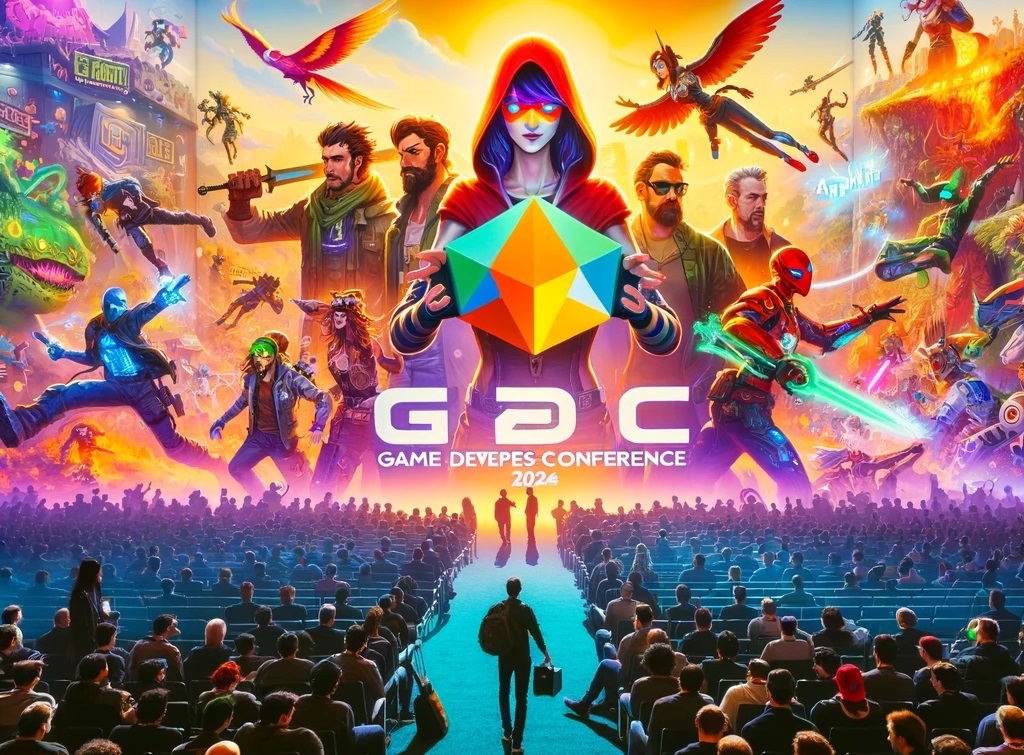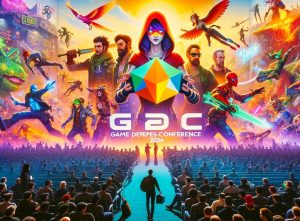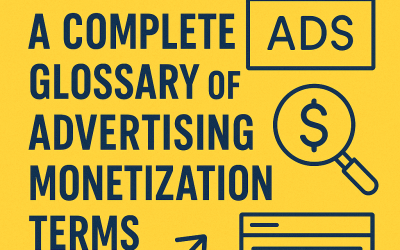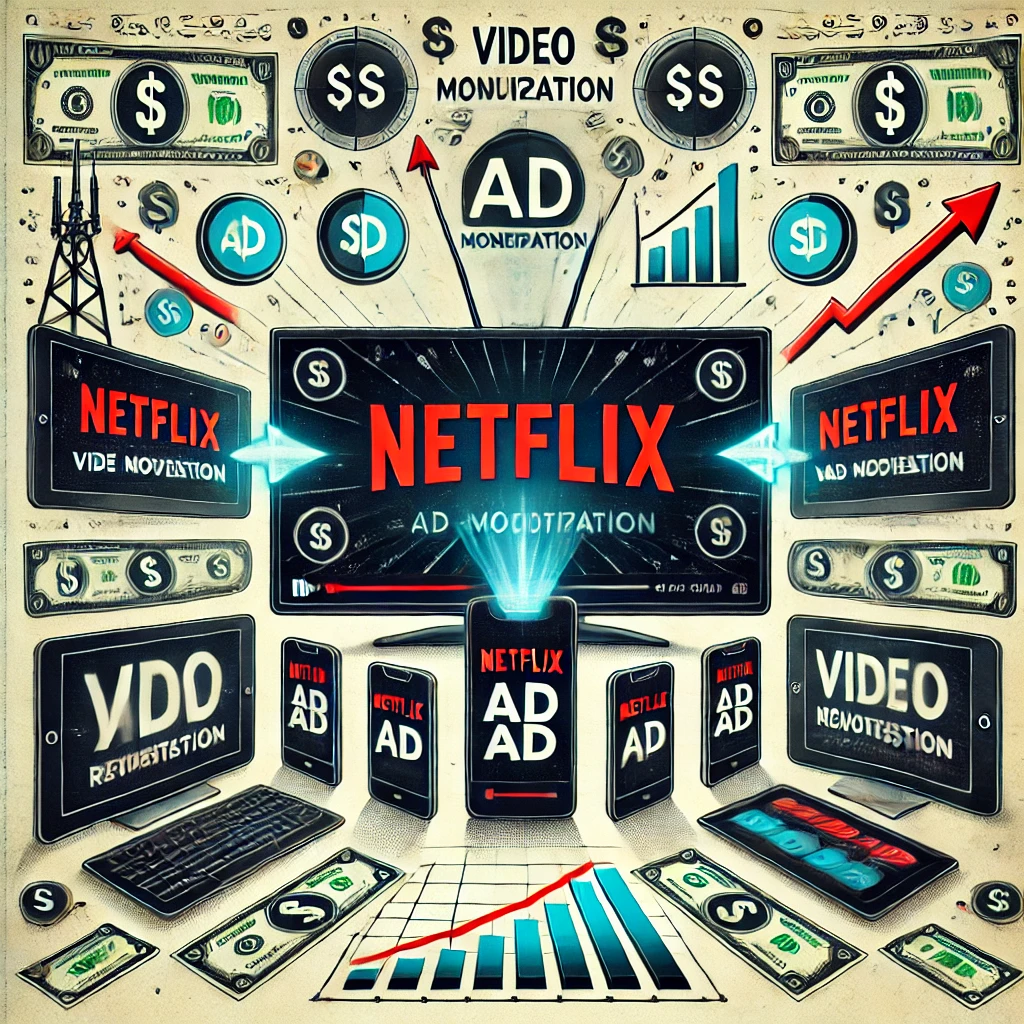GDC-2024 Highlights
So GDC2024 came and gone! What were the highlights of GDC2024? I tried to list a few things I have noticed, read, and experienced this past week at GDC 2024!
Contents
Game engines
About one-third of game developers have either transitioned to a different game engine over the last year or have pondered making such a change. This trend was notably influenced by Unity’s decision in September 2023 to introduce a “Runtime Fee” for games based on their installation numbers. The policy has undergone revisions since its announcement, but the damage was done already (at least seems like it). However, Unity and Unreal Engine are still leading the pack, each being the preferred game engine. Not far behind in preference are the engines developed in-house by gaming companies and the open-source engine, Godot, indicating a diverse landscape of toolsets that developers rely on for creating games.
VR & AR
While Meta takes the lead in VR/AR, Apple Vision Pro is coming along too. Apple, Valve, and Sony are also advancing in the virtual and augmented reality space. When it comes to choosing platforms for VR/AR projects, developers show a strong preference for Meta Quest, both for current projects (33%) and anticipated future ones (34%). This preference underscores Meta Quest’s dominance in developer interest, outpacing rivals such as Steam VR and the emerging Apple visionOS.
Generative AI
Generative AI technologies are revolutionizing the game development landscape, with platforms like ChatGPT, GitHub Copilot, and Midjourney leading the charge by broadening their user base and enhancing accessibility. GDC2024 survey uncovers that nearly half of the developers (49%) are now incorporating Generative AI tools in the work environments. Of these, 31% actively engage with the technologies themselves, while 18% observe their use among their colleagues, without directly interacting with them. Despite the growing interest, about one-fourth of the respondents have yet to find value in these tools, indicating no interest in their adoption. Indie developers, in particular, are leveraging Generative AI at a higher rate, with 37% applying the technology to their projects, as opposed to the lower 21% adoption rate seen in larger AAA and AA studios.
Ethical use of AI
Ethical considerations surrounding Generative AI loom large for developers, with four out of five expressing significant concern. The industry remains divided over the technology’s potential impact—while some anticipate mixed outcomes, a notable portion expects either decidedly positive or negative effects. Specifically, professionals in business, marketing, and programming sectors predict a beneficial influence, in contrast to their counterparts in narrative, visual arts, and quality assurance, who foresee adverse implications. Beyond the industry’s future, ethical dilemmas dominate the discourse; an overwhelming 84% of developers harbor concerns about ethical usage, including fears of job losses and the potential for intensified copyright infringement. This apprehension points to a deep-seated unease about how AI technologies might reshape rights, responsibilities, and roles within the game development ecosystem.
Interest in blockchain technologies
Blockchain technology’s appeal continues to fade, with fewer studios exploring its potential in cryptocurrency and non-fungible tokens (NFTs) over the last year. Interest has notably dropped, with only 17% of developers reporting some level of interest in blockchain, a decrease from 27% in 2023. Meanwhile, a substantial majority—over three-fourths—of industry professionals indicate their companies have no interest in adopting blockchain technology, and 4% have abandoned previous blockchain initiatives. When it comes to monetization strategies, paid digital downloads emerge as the dominant model among game developers. Survey responses reveal that half of the current projects prioritize digital premium games, with free downloads, DLC content, and physical copies also playing significant roles in the market. Consistent with trends in 2023, the least popular monetization methods remain premium-tier subscriptions and blockchain-based models, underscoring a clear preference for more traditional revenue streams in the gaming industry.
DEI initiatives
Confidence in corporate diversity, equity, and inclusion (DEI) initiatives is on the decline. In recent years, numerous companies have pledged to enhance their DEI efforts, achieving mixed results. Feedback from the survey indicates a growing skepticism towards the effectiveness of these DEI programs. While 90% of participants still see their company’s DEI efforts as marginally successful, this marks a decrease from the 96% reported in 2023. Notably, the proportion of developers who view these DEI efforts as completely unsuccessful has risen to 11%, up from just 4% in the previous year. Developers provided insights into both the successes and, more frequently, the shortcomings of their companies’ DEI strategies. Analysis of these responses highlighted critical areas of concern, including insufficient resources and training, the push for mandatory return-to-office policies, and challenges in recruiting a diverse pool of qualified candidates.

Layoffs in the Game Industry
Layoffs have become a significant concern within the game industry over the last year. A third of developers (35%) reported experiencing the impact of layoffs, either through witnessing job cuts within their teams or companies or facing layoffs personally. Quality assurance roles have suffered the most, with 22% reporting layoffs, a stark contrast to the overall 7% rate among all developers. Business and finance professionals saw the fewest layoffs, at just 2%. More than half of the surveyed individuals (56%) harbor concerns about the possibility of further layoffs in their companies within the coming year, while a third remain unconcerned. Developers attribute the increase in layoffs to factors like post-pandemic adjustments, the consolidation of studios, and prevailing economic uncertainties. Additionally, there’s a growing call among some developers for the formation of unions to offer better protection for workers in the face of these challenges.
Rewarded Video Ad Monetization
The monetization landscape of digital platforms, particularly within the mobile gaming and app industry, is witnessing a significant shift towards the adoption of rewarded video ads. Rewarded videos have thus become a favored tool among developers looking to monetize their apps or games without disrupting the user experience, simultaneously providing value to both users and advertisers. As the digital landscape continues to evolve, rewarded video ads stand out as a powerful monetization strategy that aligns the interests of developers, advertisers, and users, paving the way for more sustainable and user-friendly monetization models. Last but not least, we want to thank GDC-2024!





